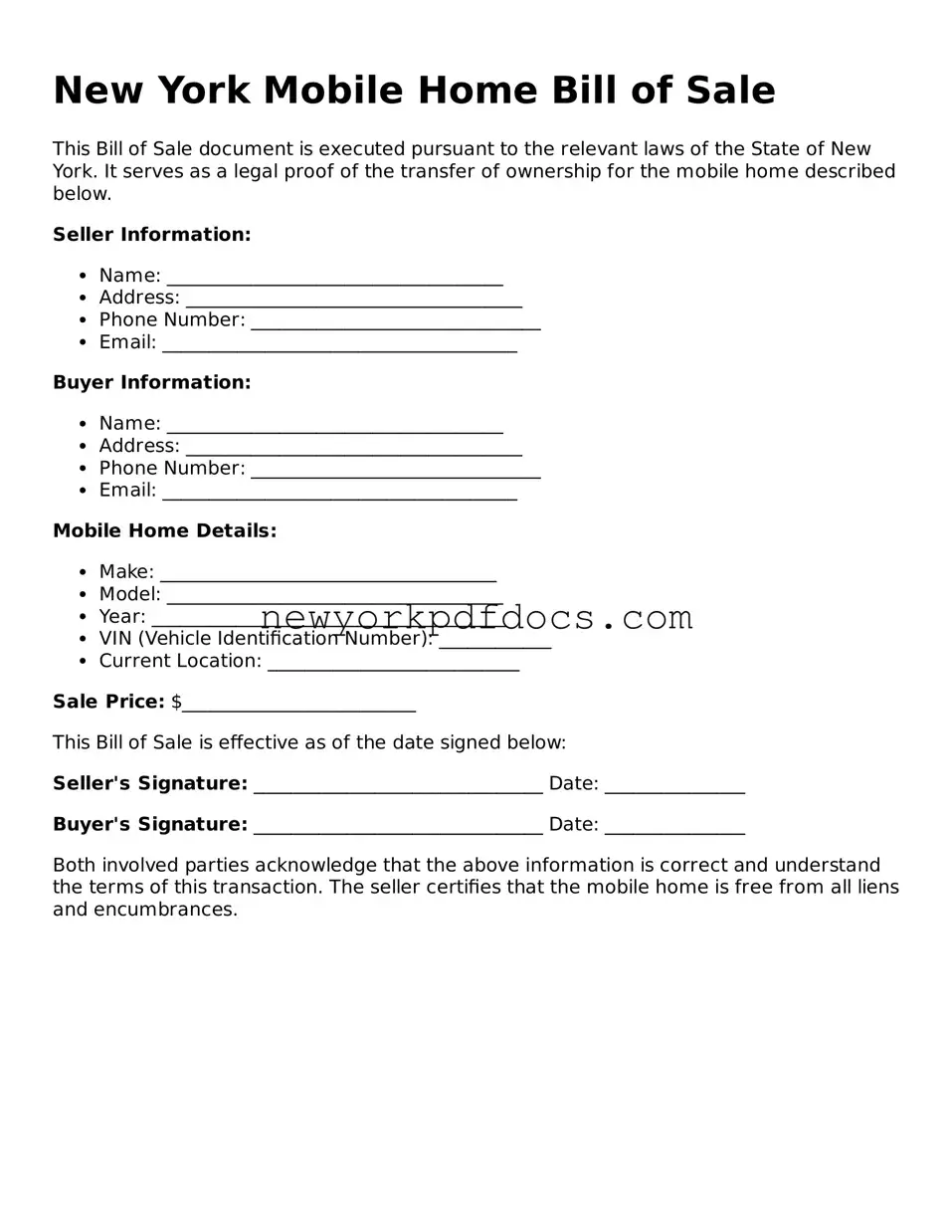Valid Mobile Home Bill of Sale Document for New York
The New York Mobile Home Bill of Sale is a legal document that facilitates the transfer of ownership of a mobile home from one party to another. This form serves as proof of the transaction, detailing essential information about the mobile home, the buyer, and the seller. Understanding its components is crucial for ensuring a smooth and lawful transfer of property rights.
Open My Document Now

Valid Mobile Home Bill of Sale Document for New York
Open My Document Now
Your form isn’t finalized yet
Edit, save, and download Mobile Home Bill of Sale online with ease.
Open My Document Now
or
⇓ Mobile Home Bill of Sale PDF
